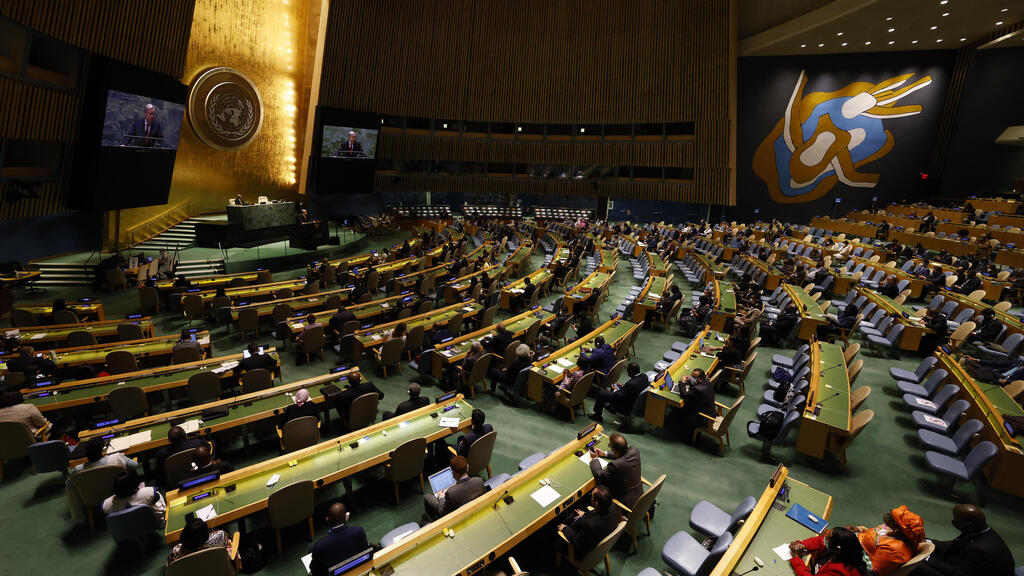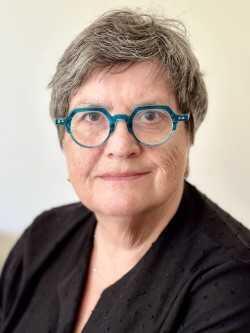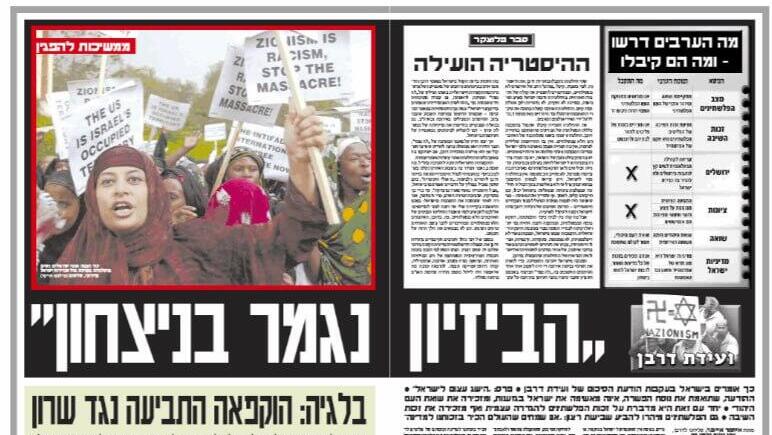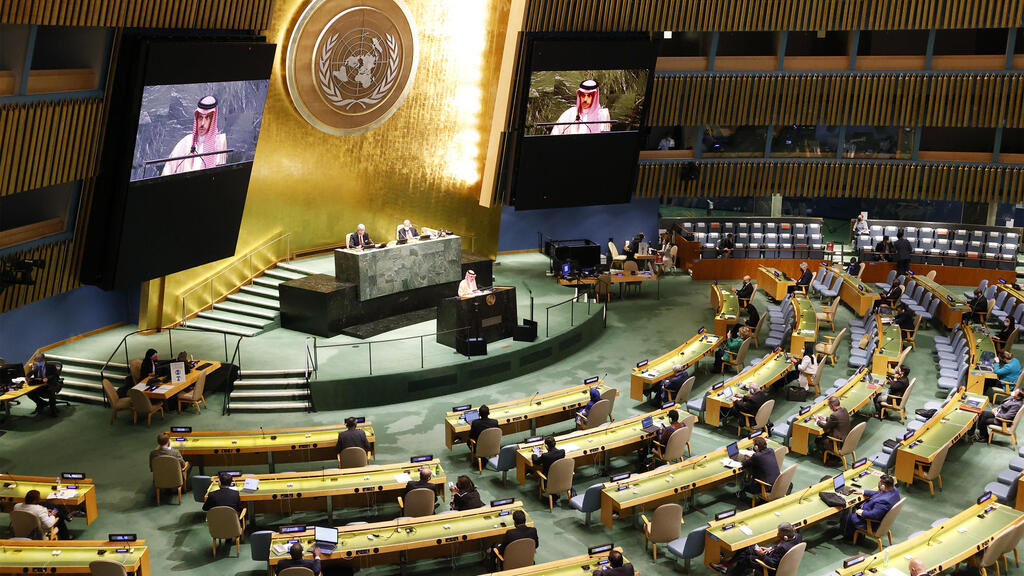Getting your Trinity Audio player ready...
Twenty-two years ago, on Friday, August 31, 2001, the United Nations' Third World Conference Against Racism opened in Durban, a coastal city in South Africa. I was there as part of the Israeli delegation. It was a harrowing experience.
Read more:
The event, formally titled the "World Conference Against Racism, Racial Discrimination, Xenophobia, and Related Intolerance," grabbed headlines both in the lead-up to its opening and throughout its course. Shortly afterward, on September 11, the United States experienced unprecedented terror attacks that drew the world's attention. However, in Israel and among its allies, the Durban Conference, or the "Durban Hatefest," as it came to be known, remains a vivid memory.
During the conference, the Israeli government and its policies were compared to apartheid, the system of racial segregation that prevailed in South Africa until 1994 and was characterized by racial discrimination and white supremacy. Since then, this comparison has been persistently used in discussions about Israel, painting it as akin to the oppressors in South Africa and portraying the Palestinians as equivalent to the Black population.
The Durban Conference left a lasting impact on the global discourse, casting a shadow over Israel and its struggle for security and peace, while also prompting reflection on the tactics and strategies employed by various actors in international forums.
In addition to the injustices, we were forced to confront poverty – many failed to distinguish between what happened within and outside the Green Line. For hundreds and thousands of Israeli diplomats who dedicated years to defending the country against slander and falsehoods, the event marked a profound nadir.
The NGO forum was hijacked
For the sake of clarity, when we refer to "Durban," we are encompassing three interconnected yet distinct aspects. The primary focus is the conference itself, which was surrounded by meetings of NGOs and featured protests. It is customary that a few days before a UN conference, various organizations dealing with different issues, such as education, health, environment, and this time, racism, gather in the same location.
The Durban Conference left a lasting impact on global discourse, casting a shadow over Israel and its struggle for security and peace, while also prompting reflection on the tactics and strategies employed by various actors in international forums
Durban hosted 8,000 representatives from 3,000 organizations worldwide, including a delegation from the World Union of Jewish Students (WUJS). These are the reports we received almost daily essentially, Durban was hijacked. The final document it produced was heavily biased in one direction to the extent that even organizations like Amnesty International, which consistently criticizes Israel, refused to support it.
Throughout the entire conference, various protests took place. Particularly memorable was a massive protest on Friday afternoon, led by veterans of the anti-white regime struggle in South Africa, including a significant and influential Muslim community. The demonstrators proclaimed, "Zionism is racism," and chanted "Intifada, Mandela." This was during the height of the Second Intifada, and the word "Mandela," meaning "power" in local languages, became a rallying cry.
In a spectacular display of hypocrisy, those advocating for LGBTQ rights walked hand in hand with those who hang gay people. Human rights advocates teamed up with those who ban women from driving and citizens of democratic nations found common ground with those whose governments dictated how to vote. This was arguably the largest anti-Israel protest, particularly in a country with a significant Jewish community and diplomatic ties with Israel.
We believed it was an opportune moment
As for the conference itself, we previously abstained from two preceding events that were dedicated to that theme. In 1975, the United Nations General Assembly labeled Zionism as a form of racism. Who would willingly join a game when everyone knows they'll be the ball being kicked around? In 1991, the UN reversed its decision, and we believed it was an opportune moment to engage in the Durban gathering. However, as the event approached, both the United States and Israel had reservations. This was because, leading up to conferences like these, it is customary for each regional group within the UN to propose a draft declaration. The conference is somewhat like a parliament, with regional groups akin to political parties - there's an African group, a South American group, and so forth.
The staff at the relevant UN headquarters, in this case in Geneva, take elements from one group's proposals and wording from another, to provide a draft document. Similar to a parliament, here too, speeches are delivered in the plenary session, while committees concurrently discuss specific issues. Almost the entire document is pre-negotiated in Geneva. Only one matter remained open:
3 View gallery


UN Secretary-General Antonio Guterres speaks at the 20th anniversary of the Durban Conference
(Photo: EPA)
While Israel is geographically situated in Asia, the Asian group at the UN refuse to admit us. After a lengthy process, we eventually joined the only group that isn't purely regional, "Western European and Others," which includes countries like Canada and Australia. In the draft declaration that the Asian group formulated in Tehran, we were accused of, among other things, perpetrating extrajudicial killings and focusing our ethnic cleansing efforts on refugees, women, and children. Nonetheless, at the last moment, we decided to participate, albeit at a relatively low level. Heading the delegations, both for the U.S. and Israel, were Deputy Ministers from our respective foreign ministries.
The lessons from Durban were learned
From the beginning of the conference, European parties attempted to find a solution but faced staunch resistance from hostile countries. On Monday afternoon, September 3, after almost half the conference had gone by with no progress, the U.S. and Israeli foreign ministries instructed their delegations to leave. The conference was scheduled to conclude on Friday of that week, September 7th, but it was extended for one more day. On Saturday, a compromise text was reached that didn't deviate significantly from what we were accustomed to - recognizing the Palestinians' right to a state, recognizing that states, including Israel, have the right to security, encouraging negotiation and more.
In a spectacular display of hypocrisy, those advocating for LGBTQ rights walked hand in hand with those who hang gay people. Human rights advocates teamed up with those who ban women from driving
About half a year after Durban, Aziz Pahad, the South African Deputy Minister of Foreign Affairs and a close associate of the then-president chose to attend a Zionist Federation conference in the country. His purpose was to convey that his government recognized that certain elements with an anti-Israel agenda had turned it into an antisemitic event. While he referred to the NGO Forum it was almost an apology for all of Durban.
Some months later, a major UN conference on sustainable development took place in Johannesburg. The lessons from Durban were learned. No serious country or organization would once again invest time and money in order to participate in a festival of hatred against Israel, without the possibility of advancing other topics. The UN ensured a reasonable draft, South Africa set guidelines for demonstrations, and we were ready for any scenario, including a respectable presence at the NGO Forum and well-prepared documents.
The United Nations and its branches' stance towards us remains consistent. Israel has been subject to more criticism and condemnation than any other hotspot in the world. To illustrate, since 2015, Israel has faced 140 condemnations at the General Assembly. In contrast, Russia received 23, and Syria got 10. This can be explained in several ways, including the influence of Arab and Muslim countries in the UN's parliamentary dynamics. Moreover, classical antisemitism adapts to circumstances and finds in Israel a substitute for the hated Jews.
Israel has provided weapons to our detractors
Fortunately, the United States, which deliberated with us whether to attend Durban and left with us, remains our guardian. While events like the World Conference Against Racism and the condemnations we face at the General Assembly are not pleasant, concrete decisions are made in the Security Council. Currently, the United States exercises its veto power there regularly and thus prevents harm to Israel.
Israel has been subject to more criticism and condemnation than any other hotspot in the world. To illustrate, since 2015, Israel has faced 140 condemnations at the General Assembly. In contrast, Russia received 23, and Syria got 10
Regrettably, Israel has recently provided weapons to our detractors. When a minister of a country that defines its presence in a territory as "belligerent occupation," (thus imposing obligations on the occupier) asserts that his freedom of movement takes precedence over that of the local population, when his colleague suggests demolishing a village, and when the nation-state law entrenches Jewish principles without guaranteeing equality for its significant minority – tough questions arise.
Coalition agreements and the coalitions' basic guidelines that ensure deepening settlements, while effectively relinquishing the official stance that the territorial hold will culminate in an agreement between the parties, bring Israel closer to a moment of truth. We will have to decide whether we grant citizenship to all residents or deny rights to millions. Either way, these choices will have profound implications for Israel's identity as a Jewish and democratic state and on its standing in the world.
 Tova Herzl
Tova HerzlThose who want to understand the potential implications of our current actions, which we undertake with open eyes, are invited to ask the South Africa of the past how clashes with the international community and international law affected it, and what were the practical implications the sanctions imposed against it for a policy of institutionalized discrimination.
One can indeed argue that excessive international focus on Israel stems from inappropriate motives. However, this should not exempt us from looking at ourselves honestly or from our duty to ask how we should conduct ourselves in order to ensure that criticism against us is not justified and that it does not lead to punitive measures that could harm us.
Tova Herzl served as Israel's first ambassador to the Baltic States following the dissolution of the Soviet Union. She had previously held the position of Ambassador to South Africa and was responsible for liaising with the United States Congress in her role at the Israeli Embassy in Washington, D.C.




